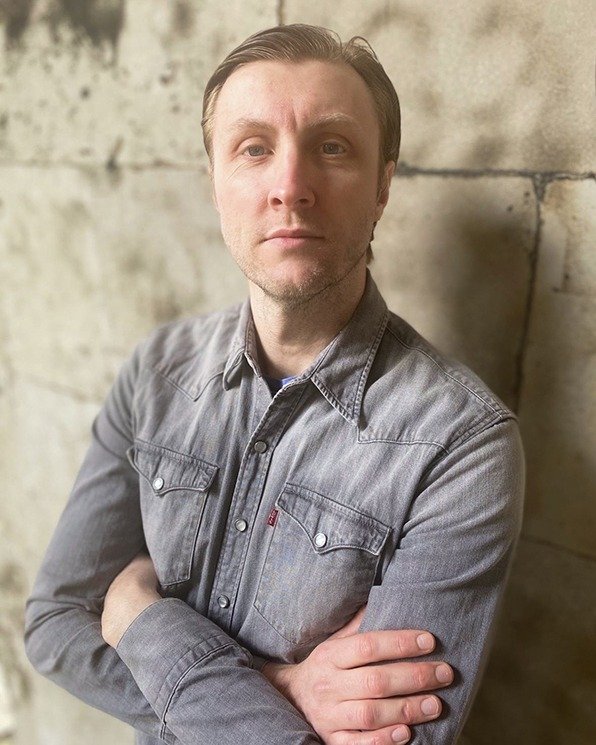It’s not just Covid-19 that’s killing Britons… alcohol is taking them out in record numbers

Sales of booze have soared during lockdown, while alcohol-related deaths leapt by 16 percent last year. Experts are calling for higher prices and urgent campaigns to tackle the UK’s notoriously liberal attitude to drinking.
Newly released figures have uncovered shocking statistics, which reveal that England and Wales have just recorded the biggest death toll from alcohol since records began in 2001.
In the first nine months of 2020, there were 5,460 deaths, a dramatic 16.4 percent increase compared to 2019.
While it’s impossible to prove direct causation, there is certainly a link to the first nationwide lockdown between March and June.
Drinking during lockdown has soared in the UK. Weekly wine sales at Waitrose’s 338 supermarkets are up by a third, beer by 49 percent, while spirits such as rum and tequila have risen by 64 percent and 56 percent.
Professor Sir Ian Gilmore, chair of the Alcohol Health Alliance UK, warned: “Alcohol dependence is often triggered by a number of factors including bereavement, job insecurity, mental health conditions or troubled relationships.
“All of these issues have been exaggerated greatly during the pandemic for many. We must start preparing now if we wish to limit future harm.”
That’s a grim warning and with a new lockdown set to continue in some form for months, the numbers are expected to keep rising.
Julie Breslin of the drug, alcohol and mental health charity, We Are With You said: “While it’s hard to pin-point the exact reasons behind the rise, front-line services have seen how the social isolation and anxiety of living through a pandemic has led to an increase in potentially harmful drinking.
“At the same time people are understandably concerned about placing extra strain on health services at the current time, with many struggling alone.”
That extends to another unwanted trend: the numbers seeking help for alcohol addiction has fallen by 20 percent since 2014. Experts agree that for a variety of factors, alcoholics in Britain are becoming more hesitant to seek help. This has only been exacerbated by the lockdown with some individuals completely cut off from the outside world.
Breslin added: “We know that around four out of five dependent drinkers aren’t accessing any kind of support. Sadly, these statistics show the impact of what happens when the majority of people with an issue with alcohol aren’t accessing treatment or support, especially in a country with such a heavy drinking culture as the UK.”
A breakdown of the numbers prove that lockdown is the main driver behind the rise.
The first quarter of 2020 was statistically similar to other years, but the second and third quarters showed large jumps mirroring the beginning of lockdown in March.
The hardest hit group by age is those between 55-64 and We Are With You has created a dedicated helpline to try to reach them.
“Many are unable to see their loved ones or friends, and are drinking more as a way to cope with increased loneliness, isolation and anxiety,” explained Breslin.
“Our research showed that at the end of last year more than one in two over 50s were drinking at a level that could cause health problems now or in the future, with nearly one in four classed as high risk or possibly dependent.”
Healthcare workers are concerned that the advanced age of most victims points to years of alcohol misuse. So this is a problem that, even with intervention, may take many years to curb.
Another way to categorise the data and one which shows another strong pattern is by location.
Compared to 2001, London and Scotland are the only UK regions to have witnessed a drop in deaths.
Also on rt.com Death rates from alcohol reach new high in England and Wales in the first 9 months of 2020, new figures showAll the other parts of the UK have seen an increase. However, in the more affluent areas of the south east and south west of England, the rise has been minimal. Conversely, the northern regions of England have seen significant rises, which reflects their lack of relative economic prosperity.
Similarly, economically challenged Northern Ireland had already suffered record deaths in 2019, showing a jump of 18 percent.
Professor Gilmore cautioned: “It is easy to forget how lax the present regulation is for this psychoactive and addictive drug.
“In France, for example, there is a complete ban on broadcast advertising and of sports sponsorship by alcohol producers, and is it sensible for alcohol to be available 24/7, for example at petrol stations?
“Most importantly of all, the government must set out an alcohol strategy to tackle the alcohol harm crisis once and for all. This strategy must be science-based and introduce measures to support and transform the lives of harmful drinkers, their families and communities.”
One possible initiative is to introduce Minimum Unit Pricing (MUP), which dictates the minimum price per unit of alcohol and legally bars producers from selling at lower prices.
It makes all drinks less attractive to consumers, but stronger spirits like vodka, whisky and gin will cost relatively more than lower strength options such as beer or wine. The difficulty though, much like smoking, is that alcohol has inelastic demand, meaning price rises will result in a less than proportionate effect on demand.
Scotland became the first country in the world to introduce MUP in May 2018, at a rate of 50 pence per unit. The nation has the highest alcohol death rate of anywhere in the UK, but it has been decreasing.
Alison Douglas, the chief executive of Alcohol Focus Scotland, said: “Scotland continues to experience considerably higher levels of alcohol-specific deaths than England and Wales. Every death from alcohol is preventable, and we should not be seeing these high numbers.
“The evidence from the evaluation of MUP so far is encouraging. It appears to be having the intended effect on alcohol consumption, with a reduction of four to five percent in off-sales in Scotland compared to England and Wales in the first year.
“It is particularly encouraging that it is poorer, heavier drinkers – who are more likely to become ill or die due to alcohol use – that have cut down most.
“Now it looks like we may be beginning to see this translate into health benefits, with alcohol deaths having reduced by over 10 percent in 2019.”
There are now calls for the Scottish government to increase the rate above 50 pence, as it has been eroded by inflation.
Wales brought in MUP last year (also at 50 pence), and there are plans to do it in Northern Ireland too, but England is currently abstaining.
While it may be time-consuming to introduce legislation to tackle the current spike in deaths, Professor Gilmore points to a quicker solution: “There are steps the government should take in the next few weeks that would start a fightback against alcohol harm. The chancellor needs to increase alcohol duty by two percent above inflation in the upcoming budget.
“Alcohol is now 74 percent cheaper than it was 30 years ago, and its availability at low prices is having a catastrophic impact on our nation’s health.”
While most of the attention is directed at the increased death toll, there are serious secondary effects. Alcohol misuse has a devastating impact on home life, children and employment, and can lead to families falling into poverty or suffering mental health issues.
Also on rt.com ‘Like being in prison’: The grim reality of what you can expect from a stay in hotel quarantineFor example, men are six times more likely to commit domestic abuse if they have problems with alcohol.
Leading calls to support families struggling, The National Association for Children of Alcoholics said: “We must remember that alcoholism is a family problem, rarely isolated. Behind these statistics are mothers and fathers whose children will have been living with the chaos of an alcoholic household. They take on caring roles and try to make everything okay for mum or dad.
“There will be countless children right now who feel that their parent’s untimely death was their fault. But with greater accessible help and support for families, we can help to break the cycle, find healthy ways to cope with lockdown, and bring these numbers down.”
Despite variations across ages and locations, there is no doubt that alcohol is having a devastating effect on the UK and killing too many. It is tattooed across daily life, with millions of Brits correlating drinking with enjoyment. Serious change has to happen if the rising death toll is to be reversed.
Professor Gilmore warned: “Alcohol harm is not taken seriously enough in the UK as drinking is so deeply ingrained in our culture.
“We must not forget that alcohol is an addictive and harmful substance that needs to be better regulated. It is linked directly to around 200 health conditions including seven forms of cancer, as well as heart disease and stroke.
“We must therefore all start to take our health seriously, create safe spaces for those who wish to talk about the harmful effects of alcohol and carefully reassess our own relationship with alcohol.
“The latest figures serve as a stark reminder of what we risk when we do not take alcohol harm seriously.”
Think your friends would be interested? Share this story!
The statements, views and opinions expressed in this column are solely those of the author and do not necessarily represent those of RT.














